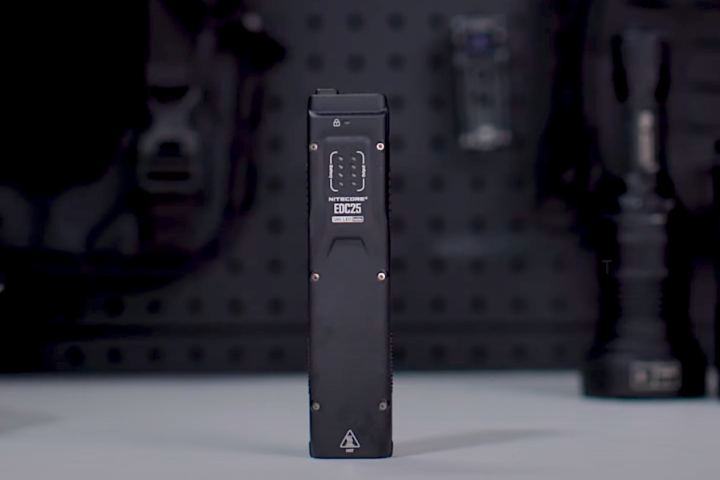Windows 8 represents a big change for Microsoft’s industry leading OS. It breaks from tradition by doing away with the long serving Start button and replacing it with a tile-based and touch-friendly Metro UI. While this move has widely polarized opinion, especially in the enterprise sector, it does represent a major trend across the industry, with mobile-tablet operating systems becoming more and more closely related to their laptop and desktop counterparts. This trend is personified by Microsoft’s in-house tablet, the Surface Pro.
Windows hasn't gone through a change like this since the introduction of XP in 2001. So why now? In short: the iPad. Cupertino's all powerful tablet changed everything. It not only created a new market in consumer electronics, but it changed the course of the entire industry, an evolution that's only now beginning to be realized.

Looking at Windows 8 from a purely software point of view, the influence of the iPad is clear; the Start screen on the new UI is built for touch input. It may play nicely with a traditional mouse and keyboard set-up but it's clear that the entire OS was built from the ground up with our fingers in mind. Switch on a Windows 8 device and you'll be greeted with what looks more like an Android tablet lock screen than the traditional user selection affair we're used to from Redmond.
Swiping past this screen brings you to the familiar password screen. Tap in your password and Start screen's Metro UI will fill up with tiles before your eyes. Watching the buttery smooth animation, you might forget for a moment that you're using Windows at all. These tiles are like a hybrid of icons and widgets. They vary in size and many of them are live, displaying information such as weather, stocks or whatever else you might need. Click one and you're taken to full screen, detailed and interactive apps that rival anything Apple puts out.
But that's only half the story. The traditional Windows Desktop isn't dead, it's just been pushed into the background, hiding among the tiles of the Metro UI like it's just another app. But click it and you'll be taken to a traditional Desktop screen, sans Start button. You also get a Windows 7-like file system, and applications like Excel and Word feel very familiar.
Before we move on to Apple's strategy, there are two huge elephants in the room: Windows Phone and Windows RT. The existence of the first of these isn't difficult to explain: putting a full desktop style OS on a phone would simply not work. It wouldn’t be affordable and besides, who wants a desktop on their phone? Literally, no-one.
The reasons behind the existence of Windows RT, the version of Microsoft's new OS that does do away with the Desktop entirely, is slightly harder to explain. It's essentially a matter of cost and covering all their bases. A tablet running Windows RT, such as the non-Pro version of the Surface, is designed to compete directly with the iPad. They'll have very similar functionality and will be priced to match. In short, it's a logical move: By launching two versions of Windows 8, Redmond is covering all its bases, whilst silencing detractors who claim that Windows tablets are simply too expensive and don’t offer a touch-friendly user experience.

So let's put the Phone and RT versions of Windows 8 to the side for a moment and turn to the competition. Apple is handling the development of OS X in a different way, but you don't need to look that closely to see that similar trends prevail. Cupertino is not-so-subtly merging the features of iOS and OS X. Last year's update, Lion, took more than a few cues from its mobile cousin, most notably touch gestures and Launch Pad.
This year’s Mountain Lion release is perhaps more telling still, with the adoption of iOS staples such as the Notifications Center, which shares almost identical social networking functionality with its mobile namesake. The Game Center is another extremely significant development, with a large number of top iOS games now cross-compatible with OS X. The two operating systems have also been fully integrated into Apple's iCloud service, allowing seamless sharing between the two software platforms.

Similarly to Microsoft, Apple is making clear moves towards more unified functionality between their mobile and full OS, but they're reluctant to fully merge the two.
So, it's clear that Apple and Microsoft are moving in roughly the same direction with their operating systems, but what's really interesting this time around is that it's Windows that's leading the charge. The guys over at Redmond have been far bolder with Windows 8 than they ever have before and they're going further with their vision of the future of the industry than Tim Cook's guys.
That vision has really come together with the announcement of the Surface Pro tablet. Like the iPad before it, the Surface Pro is set to carve out a new space in the market: it's a tablet that has the potential to replace the traditional computer. Steve Jobs proclaimed the dawn of the Post-PC era when he launched the iPad back in 2010, but it's Microsoft who will realize that vision with Windows 8 and the Surface Pro later this year.
Provided that Windows 8 gets the developer support that it's going to need to get off the ground, Microsoft have all its bases covered. Along with the full version of Windows 8, they have Windows RT to compete with the iPad, and Windows Phone 8 to compete with the iPhone (and Google's popular Android OS), all while carving out a new market in the form of a true post-PC device - the Surface Pro. Apple is a company that has made their name through innovation and right now they might just need to watch their back.
Source: Microsoft







